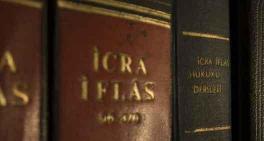Justice Gorsuch confirms conservatives' hopes, liberals' fears
Featured Articles
Neil Gorsuch became the Supreme Court’s newest member a year ago this Tuesday. President Donald Trump’s pick for the high court, its 113th justice, has now heard more than 60 cases on issues including gerrymandering, fees paid to unions and the privacy of certain cellphone records.
It’s generally unwise to predict anything about a justice so early into his or her tenure, with few opinions written and votes in a small number of cases. But so far Gorsuch has been what Republicans believed and hoped he would be — a reliably conservative vote.
Beyond that, the public has gotten a glimpse of what Gorsuch may be like as a justice, from chances to see him spar with lawyers in court arguments, speak to groups and even tackle his first issue on the cafeteria committee.
A look at what observers have seen from Gorsuch inside and outside the court in the past year: Frequent readers of Gorsuch’s writing as a justice say his style is designed to attract attention and reach an audience beyond law professors and experts.
So far, he’s written three opinions, two separate opinions where he agreed with the majority’s result and several dissents.
Earlier this year Gorsuch began a dissent by citing English writer G.K. Chesterton, an opening that drew mixed reviews. He started an opinion involving water rights with a humorous quote attributed to actor Will Rogers, who is said to have called the Rio Grande “the only river I saw that needed irrigation.”
In some cases, Gorsuch has been criticized for seemingly talking down to readers or to his colleagues on the opposite side of an issue, but he’s also won praise for being clear and engaging. Opinion writing isn’t new for Gorsuch, who spent a decade as a federal appeals court judge before joining the Supreme Court. Now, however, it comes with higher stakes and a broader audience.
Court observers caution against reading too much into Gorsuch’s first Supreme Court writings. “One year is not that much of a sample size on a justice,” said Dan Epps, who co-hosts the First Mondays podcast about the court.
Related listings
-
Kentucky high court: Death penalty IQ law unconstitutional
Featured Articles 06/16/2018The Kentucky Supreme Court has ruled that the state's practice for determining if someone is intellectually disabled and not eligible to receive the death penalty is "unconstitutional."News outlets report that the court on Thursday deemed Kentucky's ...
-
Kansas court avoids ruling on execution for student's death
Featured Articles 06/14/2018The Kansas Supreme Court has postponed a decision on whether the state can execute a man convicted of kidnapping, raping and strangling a 19-year-old college student.The high court on Friday upheld the capital murder conviction of Justin Eugene Thurb...
-
Ohio's top court to hear arguments on promotions tax dispute
Featured Articles 06/11/2018The Ohio Supreme Court plans to hear arguments in a dispute over promotions including bobbleheads and other items offered by the Cincinnati Reds to ticket buyers.At issue is whether the Reds are exempt from paying tax on the purchase of the promotion...

USCIS Will Begin Accepting CW-1 Petitions for Fiscal Year 2019
On April 2, 2018, U.S. Citizenship and Immigration Services (USCIS) will begin accepting petitions under the Commonwealth of the Northern Mariana Islands (CNMI)-Only Transitional Worker (CW-1) program subject to the fiscal year (FY) 2019 cap. Employers in the CNMI use the CW-1 program to employ foreign workers who are ineligible for other nonimmigrant worker categories. The cap for CW-1 visas for FY 2019 is 4,999.
For the FY 2019 cap, USCIS encourages employers to file a petition for a CW-1 nonimmigrant worker up to six months in advance of the proposed start date of employment and as early as possible within that timeframe. USCIS will reject a petition if it is filed more than six months in advance. An extension petition may request a start date of Oct. 1, 2018, even if that worker’s current status will not expire by that date.
Since USCIS expects to receive more petitions than the number of CW-1 visas available for FY 2019, USCIS may conduct a lottery to randomly select petitions and associated beneficiaries so that the cap is not exceeded. The lottery would give employers the fairest opportunity to request workers, particularly with the possibility of mail delays from the CNMI.
USCIS will count the total number of beneficiaries in the petitions received after 10 business days to determine if a lottery is needed. If the cap is met after those initial 10 days, a lottery may still need to be conducted with only the petitions received on the last day before the cap was met. USCIS will announce when the cap is met and whether a lottery has been conducted.




